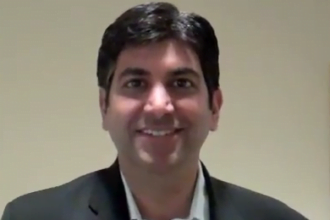In an effort to raise awareness of the leading cause of death, disability and rising health care costs in our country, the Partnership to Fight Chronic Disease (PFCD) worked throughout 2011 to broaden the discussion and advance solutions in health care particularly with respect to the cost reductions resulting from reforms that address chronic disease as the primary driver of health care costs.
In an effort to raise awareness of the leading cause of death, disability and rising health care costs in our country, the Partnership to Fight Chronic Disease (PFCD) worked throughout 2011 to broaden the discussion and advance solutions in health care particularly with respect to the cost reductions resulting from reforms that address chronic disease as the primary driver of health care costs.
2011 was a busy year for health care in the U.S. Inundated with issues relating to health insurance exchanges, essential health benefits, ACOs, court decisions, funding for Medicare and Medicaid innovations, policy makers and health care leaders also grappled with how best to handle insurmountable costs in the face of a national fiscal crisis. Given the close links between the health of our people and the health of our economy, this past year and the next several years will be pivotal in the future of health care across our country, and internationally.
With health care leading the agenda of federal leaders looking to reduce the national deficit, it is and will continue to be a critical time to pose solutions that can make a measurable difference in the fight against chronic diseases like cancer, diabetes, heart disease and obesity – the most prevalent and most costly health conditions facing more than half of our population.
PFCD focused on several critical issues involved in the tangled web of health care – Medicaid, medication adherence, information technology, health indices, workplace wellness. The overarching theme in all of the work PFCD has done is PREVENTION, and how we can improve upon averting, detecting and managing costly chronic health conditions.
Last summer’s National Prevention, Health Promotion and Public Health Council’s announcement of the National Prevention Strategy underscores PFCD’s message that sick care costs more than health care. The strategy’s four goals include: Healthy and Safe Community Environments; Clinical and Community Preventive Services; Empowered People; and Elimination of Health Disparities – all essential aspects for a successful strategy aimed at making a sustainable and measurable difference. PFCD applauds this federal government acknowledgment of the value of prevention,and more importantly, its collaborative implementation, as two critical steps in the direction of improving our ailing health care system and encouraging change when it comes to health choices.
As a sponsor of National Workplace Wellness Month in June, PFCD again asserted its dedication to advancing awareness of chronic disease as well as attainable solutions for improving health outcomes and lowering costs. With the average American spending a vast majority of time in the workplace, employer-encouraged wellness is yet another important way to address and reverse the burdens of chronic disease. While successful workplace wellness programs do require a commitment of budget and time, the programs that help prevent and manage these debilitating health conditions ultimately provide countless benefits. It is in the best interest of both the private and public sectors to drive awareness around not only the costs and implications of chronic disease, but also the many promising practices that are already measurably demonstrating health improvement and having a positive impact on companies’ bottom lines, especially at a time when companies nationwide are looking for ways to make their operations more efficient.
Also in 2011, with comprehensive research from the Cameron Institute, a white paper and a well-attended event highlighting best practices at work, PFCD approached Medicaid head on in an effort to shed some light on Medicaid solutions that enhance quality and reduce costs. With 83 cents of every dollar spent in Medicaid going to treating often preventable and highly manageable chronic diseases, especially diabetes, asthma, and hypertension, it is clear that addressing the Medicaid population is a large piece of the health care puzzle. Though more than 60 percent of adult Medicaid enrollees have a chronic or disabling condition, a mere 4 percent of Medicaid enrollees absorb half of all Medicaid funding. PFCD believes that the best approach to curbing the rising costs of Medicaid within the states is four-fold: to address the ‘hot spots’ of costs, to fill expensive gaps in care, to enhance adherence and self-management, and to promote care coordination. With a looming Medicaid expansion in 2014, time is of the essence. The National Governors Association’s recent announcement of Minnesota, Oregon, Pennsylvania and Colorado as chronic care collaborative learning states is a positive step, and PFCD will look forward in 2012 to increased progress on the state level in the fight against chronic disease.
Continuing momentum in 2012, PFCD will work hardest on providing and promoting solutions that will primarily reduce chronic disease and as a result also health care costs, with the goal of catalyzing better health outcomes always at the forefront. A great deal of opportunity exists in the health care environment and in bringing attention to the need to address rising health care costs as a critical part of deficit and debt reduction. Small changes have the potential to make big differences on the bottom line, and PFCD encourages all Americans to do their part to fight against chronic disease and for a more efficient and effective health care system.
Happy New Year!






